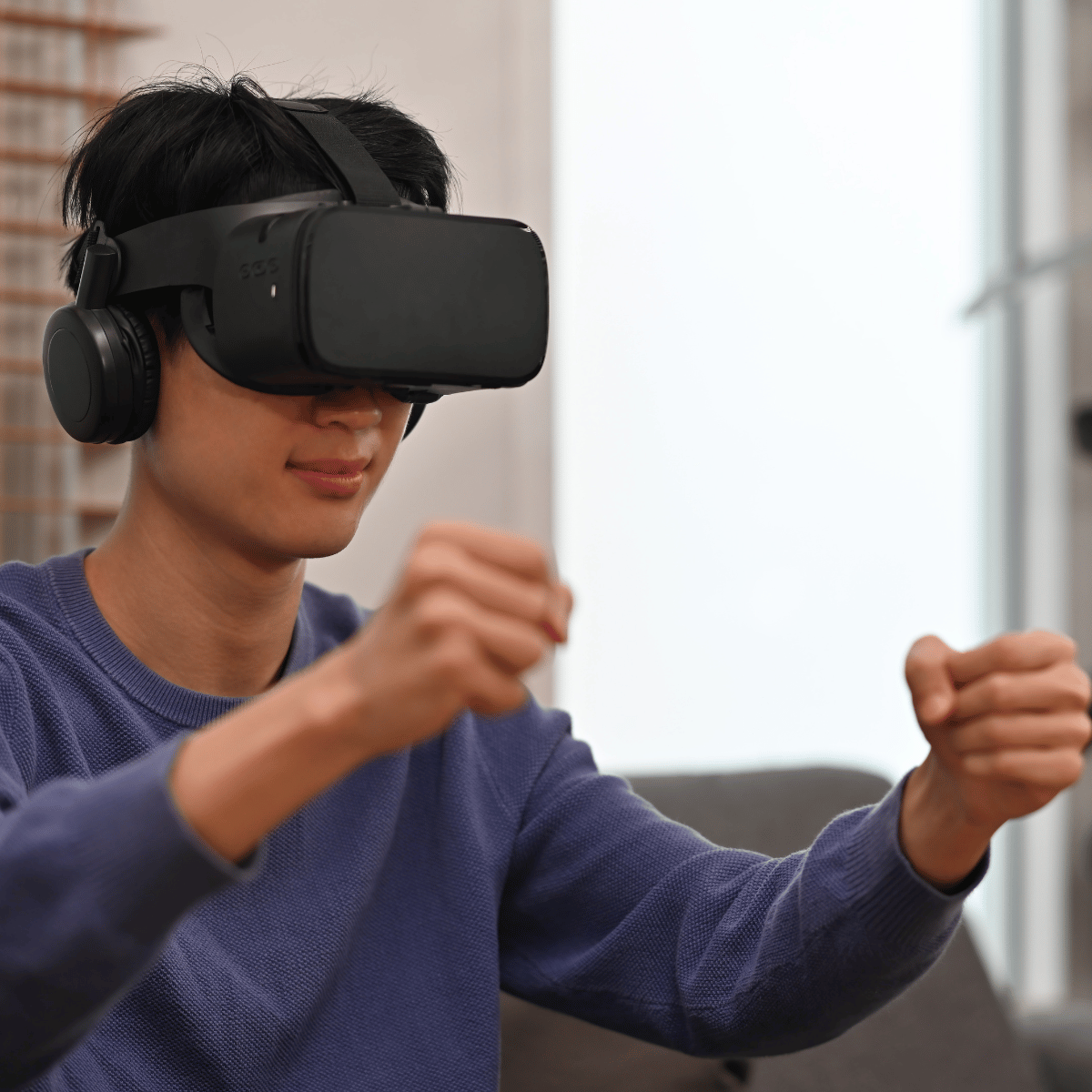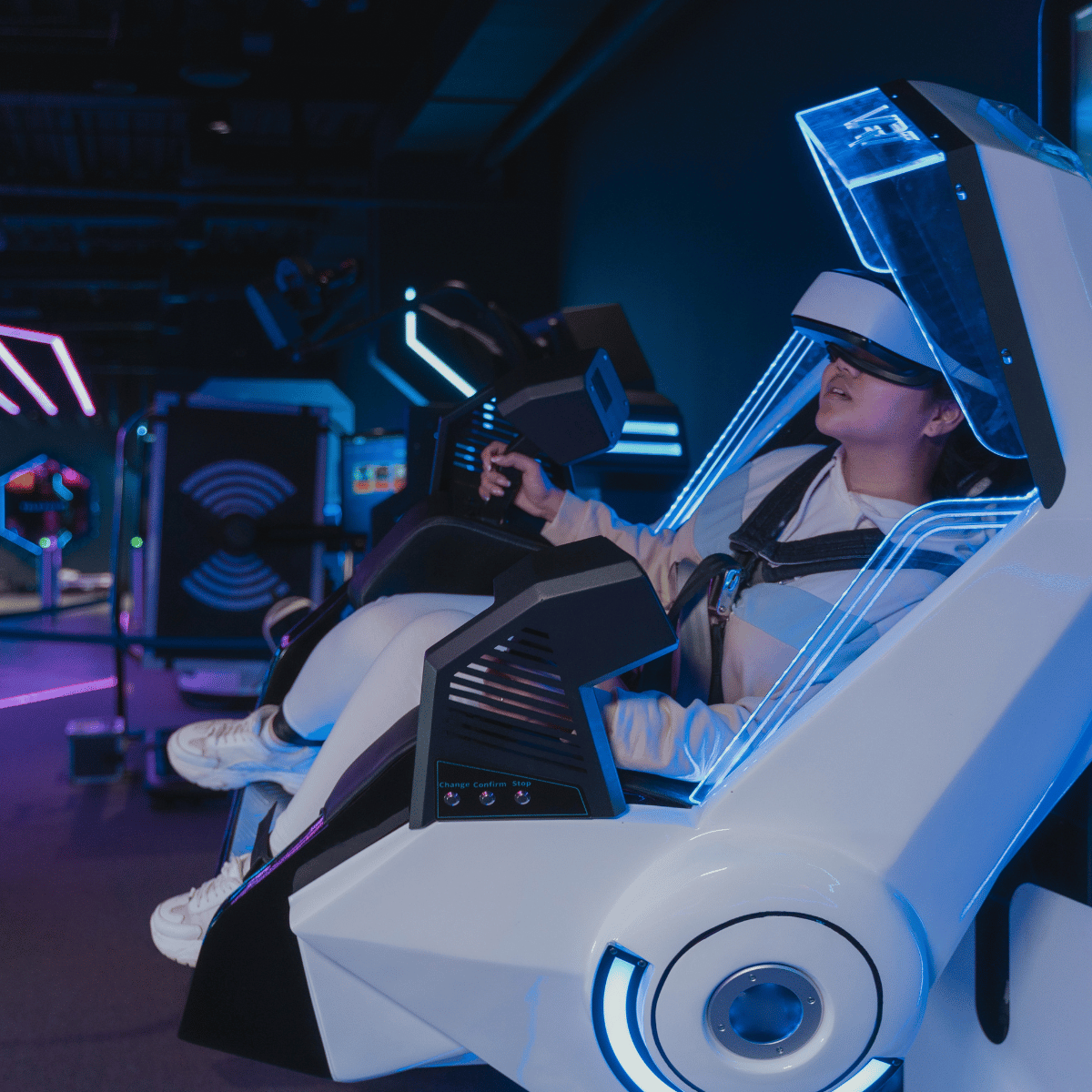
Introduction to XR development outsourcing
In today’s fast-moving immersive tech world, studios are increasingly choosing to outsource XR development to scale faster, cut costs, and access specialized skills. As XR (Extended Reality) projects become more complex, blending VR, AR, AI, and multiplayer systems, many smart studios realize that partnering with the right XR outsourcing company delivers better results than doing everything in-house.
A report by PwC predicts that XR will contribute $1.5 trillion (£1.2T) to the global economy by 2030, creating massive demand for experienced XR developers. Whether it’s building a virtual training app, an AR retail experience, or a multiplayer XR game, outsourcing gives teams access to global expertise, faster delivery, and reduced overhead.
Why Outsourcing XR Development Makes Sense for Modern Studios
Outsourcing XR development isn’t just a financial strategy; it’s a creative multiplier.
The XR and gaming sectors are expanding at unprecedented speed. According to IDC, global spending on XR technologies is projected to surpass £80 billion by 2026, while the Unity Industry 2024 Report notes that nearly 42% of XR studios cite a shortage of skilled developers as their biggest growth barrier. The real bottleneck isn’t ideas, it’s the bandwidth to execute them.
Internal teams often face burnout cycles, recruitment delays, and the ongoing challenge of mastering new frameworks like visionOS, Unreal Engine 5’s Nanite rendering, or AI-driven interactions. Each innovation demands fresh technical fluency, something even large studios struggle to maintain in-house.
By partnering with a proven XR outsourcing company like Uverse Digital, studios instantly gain access to a global pool of specialized talent, developers, artists, and engineers who’ve delivered high-performance XR solutions across industries. From spatial design to cross-platform optimization, they bring battle-tested pipelines that ensure faster development, better performance, and a lower learning curve.
When studios outsource XR development, they gain far more than coding capacity, they unlock speed, creativity, and strategic flexibility. In a market where immersive technologies evolve every few months, outsourcing gives your studio the ability to innovate continuously without overstretching internal teams or budgets.
1. Access to Specialized XR Talent, Instantly
The global talent gap for XR engineers is widening. According to Statista, demand for AR/VR developers will surge 140% between 2023 and 2027. Hiring in-house isn’t just expensive, it’s slow.
By partnering with a company that offers XR outsourcing services, studios gain instant access to a pre-vetted, multidisciplinary team:
• XR developers fluent in Unity, Unreal, ARKit, and visionOS
• 3D artists and modelers skilled in real-time optimization
• UX/UI designers who craft intuitive spatial interfaces
• AI programmers who add adaptive logic and behavior to immersive environments
At Uverse Digital, our developers have built everything from AI-driven healthcare simulations to multiplayer VR games, giving your studio not just manpower but expertise shaped by real-world experience.
2. Lower Development Costs, Higher ROI
Building an in-house XR team can exceed £300,000 annually once you factor in salaries, software, hardware, and upskilling. Outsourcing converts those fixed costs into flexible, project-based investments.
According to PwC’s 2025 Tech Outlook, outsourcing creative and technical functions can reduce total development costs by 25–40%, while maintaining quality and accelerating delivery.
That means more budget for marketing, expansion, or post-launch content, without compromising the experience.
3. Faster Time-to-Market
In XR, timing is everything. Each hardware cycle, from Meta Quest and Apple Vision Pro to Pico, brings new SDKs, toolchains, and expectations. Studios that adapt fastest win.
An outsourced XR team already has those updates built into their workflow. At Uverse Digital, we follow agile, sprint-based production models and maintain parallel testing environments, enabling partners to prototype, iterate, and launch 25–30% faster than traditional internal teams.
Speed doesn’t mean cutting corners; it means shortening feedback loops, reducing downtime, and delivering production-ready builds on time, every time.
4. Scalability Without Commitment
Outsourcing lets studios scale development without scaling payroll. Need extra Unity engineers or 3D artists for a seasonal update? No problem, XR outsourcing adds resources on demand, with no hiring delays or idle time.
At Uverse Digital, scalability is built in. Whether you need a dedicated XR team, a hybrid extension, or short-term prototyping support, we make it seamless.
5. Continuous Innovation Through External Expertise
When you outsource, you gain more than extra hands; you gain perspective. External XR teams draw on experience across gaming, healthcare, and education, blending diverse techniques and creative methods for smarter, more innovative outcomes.
At Uverse Digital, our healthcare simulations use behavioral AI models first developed for gaming, creating adaptive training experiences that respond to users in real time.
Access to Specialized XR Talent — The Core Benefit of Outsourcing XR Development
Outsourcing XR development is no longer just a cost-saving tactic; it’s a strategic move that gives studios access to specialized skills, faster delivery, and scalable innovation. Whether you’re building immersive training modules, multiplayer games, or industrial XR apps, the right external partner can help you stay ahead of the curve without overextending your internal team.
1. Access to Specialized Talent
The XR market is growing fast, expected to reach £390 billion by 2030 (PwC). However, hiring and retaining XR experts in-house is tough. From Unity and Unreal developers to 3D artists and AI engineers, finding cross-disciplinary talent takes time and resources.
By outsourcing, studios gain instant access to seasoned XR developers with deep experience across industries, from healthcare simulations to enterprise AR training.
2. Faster Time to Market
Outsourcing enables parallel development. While your core team focuses on game design or mechanics, an external XR development company can handle asset creation, environment design, or feature integration.
This approach shortens production cycles by up to 40%, as reported by Clutch insights on outsourced creative projects.
3. Reduced Cost and Risk
Building an in-house XR team means investing in hardware, software licenses, and ongoing R&D. Outsourcing turns these fixed costs into variable costs; you pay only for what you need.
You also reduce project risk by leveraging an experienced XR outsourcing partner that’s already solved similar challenges for other studios.
4. Scalability On Demand
XR projects often require rapid scaling, from a small prototype to a full enterprise deployment. With an external XR development team, scaling up or down becomes frictionless, without the long-term overhead of hiring or layoffs.
5. Fresh Perspective and Innovation
External teams often bring new creative ideas and technical perspectives. A fresh set of eyes can help identify performance optimizations, suggest innovative use of spatial computing, or introduce generative AI workflows that enhance user immersion.
When Should You Outsource XR Projects?
Even the most capable studios can’t (and shouldn’t) do everything in-house. Recognizing the right time to outsource XR development can make the difference between hitting deadlines and burning out your core team.
1. When Internal Capacity Is Maxed Out
Your design and engineering teams might already be juggling multiple releases. Outsourcing lets you offload asset production, prototyping, or optimization tasks without pausing existing projects. This keeps delivery consistent while maintaining creative quality.
2. When You Need Specialized Skills
Advanced XR features, like hand tracking, multiplayer synchronization, or AI-driven environments, often demand niche expertise. Partnering with an XR app development company gives you access to dedicated specialists who can solve complex technical challenges faster.
3. When Timelines Are Tight
Outsourcing accelerates delivery by enabling parallel development streams. Many studios outsource environment design, level building, or QA testing to meet investor or publisher deadlines without stretching internal teams thin.
4. When You Want to Minimize Risk
If you’re venturing into a new XR vertical (say, medical simulations or enterprise AR), outsourcing lets you test market feasibility without heavy upfront investment. You can validate ideas quickly before scaling.
5. When You’re Expanding Globally
Outsourcing helps studios work across time zones, ensuring near 24/7 progress. For XR products with international launches, this allows simultaneous localization, testing, and deployment, significantly improving speed to market.
How to Choose the Right XR Outsourcing Partner
Selecting the right XR outsourcing company isn’t just about rates, it’s about reliability, technical depth, and creative alignment. The right partner feels like an extension of your own studio, not a detached vendor.
1. Check Their XR Portfolio
Start by reviewing case studies and demos. Look for projects across VR, AR, and MR platforms that align with your goals, whether it’s training simulations, multiplayer XR games, or AI-enhanced environments.
An experienced XR development company should showcase tangible results like frame rate optimization, interaction fidelity, and cross-platform performance.
According to Clutch’s 2024 outsourcing insights, studios that vet portfolios early reduce project failure risk by 38%.
2. Evaluate Technical Expertise
Ensure the team is fluent in tools like Unity, Unreal Engine, Blender, Vuforia, ARKit, ARCore, and Photon for networking. Ask about their testing processes, device compatibility, and optimization practices, especially if you’re targeting Meta Quest, Apple Vision Pro, or HoloLens platforms.
3. Assess Communication and Project Management
Clear communication is critical for outsourcing success. Look for teams using Agile or Scrum workflows, with dedicated project managers, weekly updates, and milestone-based billing.
Consistency ensures transparency and minimizes rework.
4. Ask About IP Ownership and Security
Your creative assets, source code, and designs are valuable. Confirm that intellectual property rights remain with your studio and that NDAs and data protection policies are in place.
5. Choose Partners Who Think Long-Term
The best outsourcing relationships evolve over time. Look for XR partners who co-create solutions, provide post-launch support, and proactively suggest optimizations or new features as technology evolves.
FAQs on Outsourcing XR Development
1. What does it mean to outsource XR development?
Outsourcing XR development means partnering with an external XR app development company to design, build, or scale immersive experiences, from VR training and AR applications to multiplayer games. It allows studios to expand production capacity, reduce costs, and tap into global expertise without the overhead of full-time hiring.
2. Why do studios outsource XR projects?
Studios outsource to speed up delivery, reduce costs, and access specialized talent that might not be available in-house. Outsourcing also allows them to focus on core creative and strategic goals while an experienced external XR team handles execution, optimization, or feature expansion.
3. Is outsourcing XR development cost-effective?
Yes. It converts fixed costs (like hardware, licenses, and salaries) into flexible, project-based expenses. For instance, developing in-house may cost 40–60% more than outsourcing due to infrastructure and R&D needs (Statista 2024)
4. How do I find a reliable XR outsourcing partner?
Look for teams with proven XR portfolios, transparent project management, and clear IP protection policies. Check independent reviews (like Clutch or GoodFirms) and ask about their experience with your industry e.g., gaming, healthcare, or enterprise XR training.
5. What industries benefit most from XR outsourcing?
While gaming and healthcare are leading adopters, education, real estate, manufacturing, and enterprise training are rapidly investing in XR development outsourcing. These industries often rely on external XR teams to meet complex design, compliance, and scalability needs.
Ready to Outsource XR Development? Let’s Build Something Extraordinary.
Outsourcing XR development isn’t just a shortcut, it’s a smart strategy for studios that want to innovate faster, scale efficiently, and stay ahead in immersive technology. Whether you’re planning a new VR training app, upgrading your game pipeline, or exploring AI-powered XR interactions, the right partner can transform your vision into reality.
At Uverse Digital, we help studios and enterprises extend their creative and technical capabilities through flexible, transparent, and scalable outsourcing models. From concept to deployment, our experts ensure your XR experience stands out, visually, technically, and commercially.
Let’s start your next XR project today. Contact Uverse Digital to discuss how we can bring your immersive ideas to life.
About the author : Uverse Digital
Stay Ahead of the Game
Get XR insights, dev tips, and industry updates straight to your inbox
Join our insider list for cutting-edge content on game development, performance optimization, and immersive experiences, curated for industry leaders like you.



